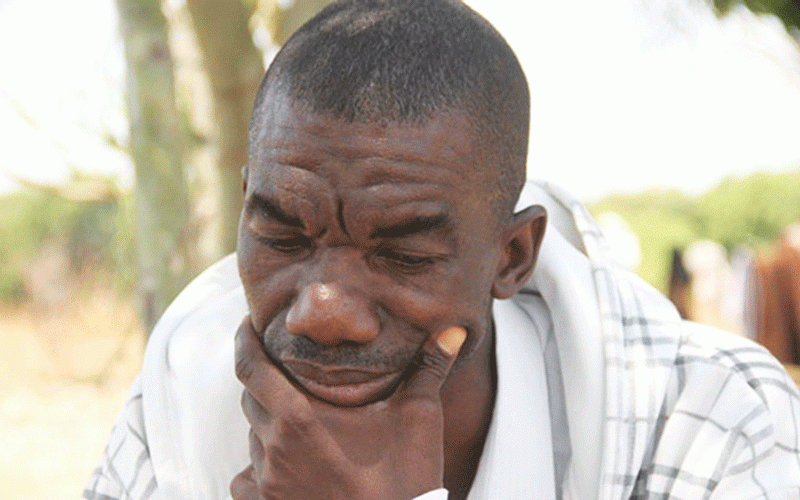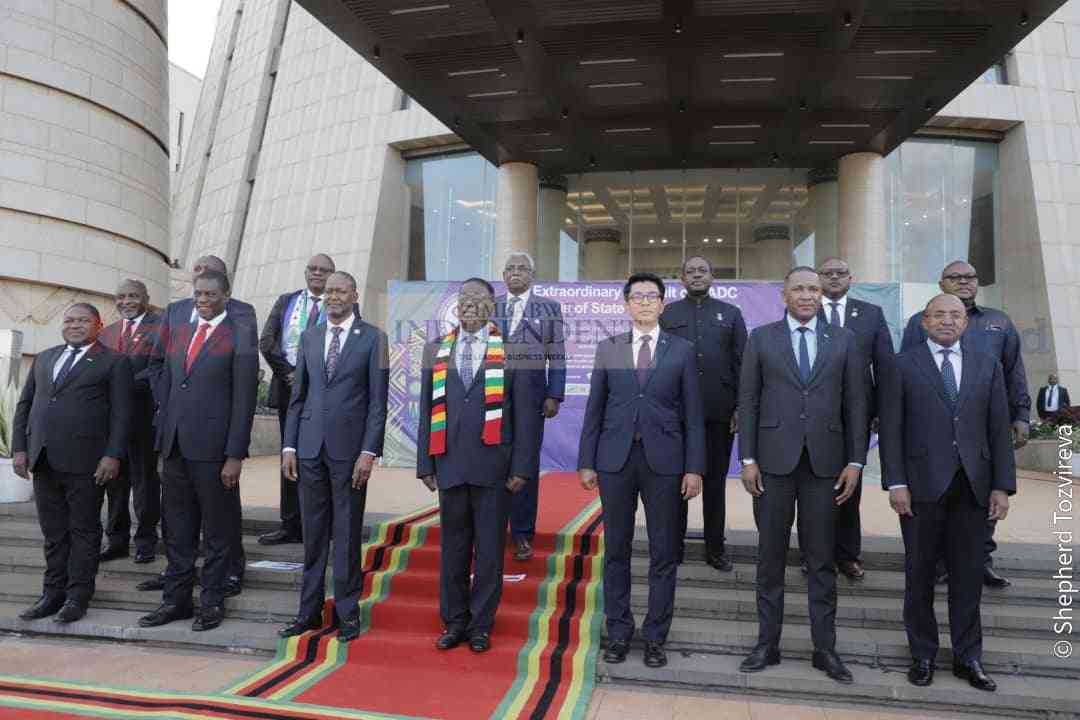
Tomorrow marks Africa Day, when Africa is her own mirror, probably reflecting on her history, the present challenges and aspirations. However, while history, which is not static, plays a significant role in shaping national ideologies, deeply embedded idiosyncrasies and mindsets, mankind should learn that the environment in which they live is both evolutionary and revolutionary in many respects.
The present African mental constitution is preoccupied with apparitions of slavery, colonial subjugation and racism. There are a few relics of these evils. However, such conceptions have become rich fodder for unproductive political rhetoric and inferiority complex. It is not surprising, therefore, that whenever former colonial masters and their allies impose sanctions for the continent’s misdemeanours, Africa squeals with anger and scapegoating. Although modern nations are inter-dependent, scapegoating is a retrogressive mentality. While slavery is now an antiquated means of human exploitation, Africa’s well-educated and professional human capital is now being exported to Europe and beyond at the expense of local development.
Although labour is rarely exported officially and conventionally at inter-State and multi-State levels, there are forces that influence labour migration. One of these forces is simply the underutilisation and underpayment of human capital and talent at the local level. Further, it is unfortunate that investment on human capital development occurs without regard to return on such investment. Above all, Africa’s natural resources are at the same time being mortgaged to the highest bidder for loans and technical assistance to subsidise the empires of corrupt, indigenous ruling classes and bourgeoisie.
Although corruption is a universal evil, it has unfortunately become an immortal operating system in developing nations and in particular in Africa. Instead of expropriating little of the national milk outputs, cows are stolen and butchered. Much of what is regarded as bilateral and multilateral relations is the hallmark of neo-colonialism and dependency economics. International trade is occurring behind the scenes with insignificant returns at the African local level. In these circumstances, Africa requires a collective radical paradigm shift.
In view of the above, Africa’s regional groupings like the Southern African Development Community (Sadc), Economic Community of West African States (Ecowas) and the continental African Union (AU) have become nests for rearing dictators and corruption.
Most of these African politicians have their backgrounds in nationalistic politics that brought about Africa’s independence. They have mistakenly assumed the divine right to rule the various sovereign African nations. Their progeny, who have moved with the revolutionary gravy train have subscribed to the same philosophy. As a result, a political profiler of Africa may be interested in knowing the richest and oldest president or presidents in the continent.
At their intermittent summits, African leaders spend too much time and money talking a lot of sense, but doing little or nothing about their resolutions. Despite a few achievements, the reason for such political barrenness is a preoccupation with self-interests and competitive arrogance. It should be noted, however, that Africa’s philosophy regarding regional integration and continentalism is a product of Pan-Africanism.
The decolonisation of Africa has brought about a mixture of ideological lethargy and indifference as regards the concept of Pan-Africanism. While in the passage of time, Pan-Africanists agreed on some points, Pan-African intellectuals seem to have been conceptually divided on the central meaning of Pan-Africanism. On the one hand, some were primarily preoccupied with the decolonisation of Africa; on the other hand, others were interested in the decolonisation process, the integration of Africa and the broad future prospects of the continent. Another group remained neutral.
- Chamisa under fire over US$120K donation
- Mavhunga puts DeMbare into Chibuku quarterfinals
- Pension funds bet on Cabora Bassa oilfields
- Councils defy govt fire tender directive
Keep Reading
In these circumstances, according to Lynda Iroulo (2017), a Free University of Berlin scholar, “the African continent formed two antagonistic blocs on the issue – Casablanca and Brazzaville. The Casablanca bloc appeared more radical as it pushed for a political federation, a United States of Africa. The Brazzaville group moved for more gradual integration through economic cooperation. A third grouping, the Monrovia bloc, remained neutral and uncommitted.”
According to the Columbia Electronic Encyclopedia, “Pan-Africanism is a general term for various movements in Africa that have as their common goal the unity of Africans and the elimination of colonialism and white supremacy from the continent. However, on the scope and meaning of Pan-Africanism, including such matters as leadership, political orientation, and national as opposed to regional interests, they are widely, often bitterly, divided.”
However, according to Professor Rayford W Logan (The Historical Aspects of Pan-Africanism: A Personal Chronicle; African Forum publication), Pan-Africanism was a movement to encourage mutual assistance and understanding among the peoples of Africa and of African descent. Logan submits that although the real history of Pan-Africanism dates back to the beginning of the 20th Century, it was only after the First World War in 1914 that the movement as a whole began to have the ultimate aim of some form of self-government for the African people.
Despite differing views and ensuing debate, the Pan-African philosophy is thus not obsolete because the sum total of its ideals is still to be refined and fulfilled. The fulfillment of the aspirations of Pan-Africanists is still work-in-progress. It is not surprising, therefore, that Pan-Africanism is presently viewed side-by-side with what has become known as the African Renaissance.
Like Pan-Africanism, African renaissance, a concept advocated by former South African President Nelson Mandela and popularised by Thabo Mbeki, is an ideology upon which African institutions are founded. The first time the term African Renaissance appeared was in Cheikh Anta Diop’s series of essays entitled Towards the African Renaissance: Essays in Culture and Development, 1946–1960.
However, according to Lynda Iroulo, both Pan-Africanism and the African Renaissance “do not provide explicit strategies on how to go about building strong African institutions. However, they can serve as a check on how African institutions should be managed to avoid any form of neo-colonialism.” Such deficiencies and chronic lethargy require a collective radical paradigm shift.
Africans and their leaders must exorcise the demons of past wrongs, break with the past, deal with the present challenges and move on. This exercise requires a radical paradigm shift. Above all, Africa must uncompromisingly expel the demonic legions of corruption and break forthwith what has become known as “the resource curse”.
According to a Natural Resource Governance Institute publication (2015), “The resource curse (also known as the paradox of plenty), refers to the failure of many resource-rich countries to benefit fully from their natural resource wealth, and for governments in these countries to respond effectively to public welfare needs.”
Nevertheless, as for the phrase “paradigm shift”, first identified by an American physicist and philosopher Thomas Kuhn, the phrase is what Immanuel Kant defined in 1787 as a “revolution of the way of thinking”.
However, changing the way of thinking alone does not help if thoughts are not translated to actions. In his book titled Principle-centered Leadership (1991), Stephen R Covey explains the four natural laws or governing principles as follows:
Security – our sense of worth, identity, emotions, self-esteem and personal strength; Guidance – the direction we receive in life; Wisdom – a sense of balance, judgment, discernment and comprehension; Power – the capacity to act, the strength and courage to accomplish something.
Covey further argues that “the great breakthroughs are breaks with old ways of thinking”. However, in view of the fourth principle above, what makes ideas great are actions and accomplishment. In these circumstances, what has made Africa an impoverished and conflict-ridden continent is not the lack of ideas, but the lack of a revolution of actions and accomplishment. Thus, it is safe to submit that a paradigm shift is meaningless if not translated to actions that can be subjected to objective evaluation. In view of the lethargic attitude towards this concept, we remain far away from creating the Africa we want.
According to a publication of the AU titled Agenda 2063: The Africa We Want (2015), the following (with emphasis added) is a list of the aspirations for the Africa we want: A prosperous Africa-based on inclusive growth and sustainable development; An integrated continent, politically united and based on the ideals of Pan-Africanism and the vision of Africa’s Renaissance;
An Africa of good governance, democracy, respect for human rights, justice and the rule of law;
An Africa with a strong cultural identity, common heritage, shared values and ethics;
An Africa whose development is people-driven, relying on the potential of African people, especially its women and youth, and caring for children, Africa as a strong, united and influential global player and partner.
It is sad to note that none of the above aspirations are near in sight. It is not surprising, therefore, that the period required for achieving these aspirations stretches up to the year 2063. Above all, most people (including those who crafted Agenda 2063), who aspire to see a prosperous, peaceful and secure Africa will not live to see such a world.
Objective students of history will agree that Pan-Africanism is to date more than a century old. However, since the Organisation of African Unity (now the AU) was established on 25 May 1963, Agenda 2063 presupposes that Africa requires 100 years to realise its vision and full potential. It is understood that in real terms this period (1963 -2063) was interrupted by sporadic nationalistic revolutions against colonial rule.
However, there have also been civil wars. All these factors, among others, made it impossible for African nations to work together for development as a united continent. Today, Pan-Africanism is elusive and Africans require a collective radical paradigm shift to ensure good governance prevails for peace and prosperity even before the year 2063.
Willard Chinhara is a consultant & multi-disciplinary research writer. He writes in his personal capacity.











